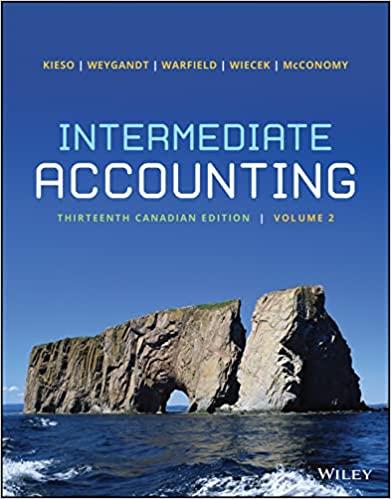Complete the following statements by filling in the blanks or choosing the correct answer in parentheses. a.
Question:
Complete the following statements by filling in the blanks or choosing the correct answer in parentheses.
a. In a period in which a taxable temporary difference reverses, the reversal will cause taxable income to be (less than/greater than) accounting income.
b. In a period in which a deductible temporary difference reverses, the reversal will cause taxable income to be (less than/greater than) accounting income.
c. If a $76,000 balance in the Deferred Tax Asset account were calculated using a 25% rate, the underlying temporary difference would amount to $ _______.
d. Deferred taxes (are/are not) recorded to account for permanent differences.
e. If a taxable temporary difference originates in 2023, it causes taxable income of 2023 to be (less than/greater than) accounting income for 2023.
f. If total income tax expense is $50,000 and deferred tax expense is $65,000, then the current portion of the total income tax expense is referred to as a current tax (expense/benefit) of $ _______.
g. If a corporation’s tax return shows taxable income of $100,000 for Year 2 and a tax rate of 25%, the amount that will appear on the December 31 Year 2 SFP for “Income tax payable” if the company has made estimated tax payments of $16,500 for Year 2 will be $ _______.
h. An increase in the Deferred Tax Liability account on the SFP is recorded by a (debit/credit) to the Deferred Tax Expense account.
i. An income statement that reports current tax expense of $82,000 and a deferred tax benefit of $23,000 will report total income tax expense of $ _______.
j. Under ASPE, a valuation account may be used whenever it is judged to be more likely than not that a portion of a deferred tax asset (will be/will not be) realized.
k. If the tax return shows total income taxes due for the period of $75,000 but the income statement shows total income tax expense of $55,000, the difference of $20,000 is referred to as a deferred tax (expense/benefit).
l. If a company’s income tax rate increases, the effect will be to (increase/decrease) the amount of a deferred tax liability and (increase/decrease) the amount of a deferred tax asset.
m. The difference between the tax base of an asset or liability and its carrying amount is called a _______ difference. Differences between accounting income and taxable income that will reverse in the future are called _______ differences.
Step by Step Answer:

Intermediate Accounting Volume 2
ISBN: 9781119740445
13th Canadian Edition
Authors: Donald E. Kieso, Jerry J. Weygandt, Terry D. Warfield, Irene M. Wiecek, Bruce J. McConomy





